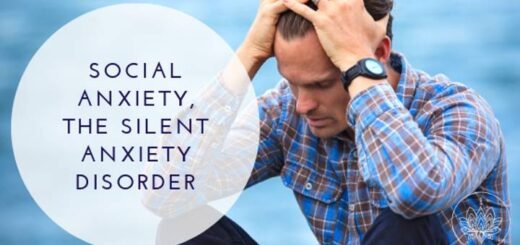Diagnosing Social Phobia: Essential Insights for NZ Professionals
In New Zealand, the prevalence of social phobia, or social anxiety disorder, highlights the critical role of mental health professionals in its diagnosis and management. Understanding social anxiety criteria is essential for accurate identification and treatment. Mental health practitioners are equipped to assess individuals based on established guidelines, helping to differentiate between normal shyness and clinically significant social anxiety.
This comprehensive approach ensures that Kiwis struggling with social phobia receive the appropriate support and intervention. By familiarizing themselves with social anxiety criteria, professionals can tailor their strategies to individual needs, ultimately enhancing the mental wellness of New Zealand communities. For further insights and research on this topic, visit Exploring Social Phobia: Insights and Research for Kiwis.
Understanding Social Phobia: A Brief Overview
Social phobia, also known as social anxiety disorder, is a debilitating mental health condition characterized by an intense fear of social situations and being scrutinized by others. In New Zealand, the prevalence of social phobia is significant, with many individuals struggling silently. The disorder often manifests through symptoms such as excessive sweating, rapid heartbeat, and overwhelming anxiety in social settings. This can lead to avoidance behaviors, impacting personal relationships and professional opportunities.
Mental health professionals play a crucial role in diagnosing social phobia by using established diagnostic criteria. The social anxiety criteria can help practitioners identify the condition and differentiate it from other mental health issues. These criteria include a marked and persistent fear of one or more social situations, which is out of proportion to the actual threat posed. Understanding the nuances of this disorder is essential for effective diagnosis and subsequent treatment.
The Importance of Early Diagnosis
Early diagnosis of social phobia is vital for effective intervention. Delayed recognition can lead to worsening symptoms and a greater impact on one’s quality of life. Mental health professionals in New Zealand emphasize the need for timely assessment, particularly in younger individuals who may be experiencing their first episodes of social anxiety.
Diagnostic tools, such as structured interviews and self-report questionnaires, are commonly used by psychologists and psychiatrists to assess social phobia. These tools help to capture the severity of the anxiety, the situations that trigger it, and its impact on daily functioning. In New Zealand, various mental health organizations provide resources and support for individuals seeking diagnosis.
For those concerned about social phobia, reaching out for help is the first step. Engaging with mental health professionals who understand the social anxiety criteria can facilitate early diagnosis. By recognizing symptoms early on, individuals can access appropriate treatment options, including therapy and support groups specifically tailored for New Zealanders.
Role of Clinical Assessment in Diagnosis
A comprehensive clinical assessment is essential in diagnosing social phobia. Mental health professionals utilize semi-structured interviews to gather detailed information about an individual’s history, symptoms, and functioning. This assessment often includes questions about specific social situations that provoke anxiety, the duration of the symptoms, and any avoidance behaviors.
In New Zealand, mental health practitioners are trained to recognize cultural factors that may influence the presentation of social anxiety. For instance, Māori and Pasifika populations might express their anxiety differently than Pākehā individuals. Practitioners must take cultural context into account to ensure an accurate diagnosis and effective treatment plan.
Additionally, mental health professionals often employ standardized diagnostic tools, such as the Social Phobia Inventory (SPIN) or the Liebowitz Social Anxiety Scale (LSAS), to quantify the severity of symptoms. These assessments assist clinicians in determining whether the individual meets the social anxiety criteria for diagnosis.
Treatment Options Following Diagnosis
Once social phobia is diagnosed, mental health professionals can recommend various treatment options. Cognitive-behavioral therapy (CBT) is one of the most effective treatments for social anxiety and is widely available across New Zealand. CBT focuses on identifying and altering negative thought patterns and behaviors associated with social situations.
In addition to individual therapy, group therapy can also be beneficial, allowing individuals to confront their fears in a supportive environment. Support groups specifically for those dealing with social phobia can foster understanding and camaraderie among participants, helping to reduce feelings of isolation.
Medication may also be prescribed as part of a comprehensive treatment plan, particularly for those with severe symptoms. Selective serotonin reuptake inhibitors (SSRIs) and benzodiazepines are commonly used to alleviate anxiety symptoms. Mental health professionals in New Zealand work closely with patients to monitor the effectiveness of these medications and adjust dosages as necessary.
For additional resources on treatment options, New Zealanders can explore the information available at Social Phobia New Zealand.
The Role of Support Networks
Support networks play a significant role in the treatment of social phobia. Family members, friends, and peer support groups can provide the emotional backing necessary for individuals to face their fears. Mental health professionals often encourage clients to involve their support networks in their recovery journey.
In New Zealand, community-based initiatives and organizations offer various support services for individuals with social anxiety. These services may include workshops, peer-led support groups, and educational resources aimed at helping individuals understand and manage their condition.
Education about social phobia is crucial for reducing stigma and encouraging open conversations about mental health. Mental health professionals often work to empower individuals to seek support from their networks and normalize conversations around anxiety disorders. Addressing the social anxiety criteria openly can help dispel myths and promote a deeper understanding of the challenges faced by those living with social phobia.
Cultural Considerations in Diagnosis
Cultural factors significantly influence the manifestation and perception of social phobia. In New Zealand, diverse cultural backgrounds may shape how individuals express their anxiety and seek help. Mental health professionals must be sensitive to these cultural nuances to provide accurate diagnoses and effective treatment.
For instance, Māori and other indigenous populations may have different views about mental health and social interactions. Practitioners with cultural competence can better engage with clients from diverse backgrounds, ensuring that the diagnostic process respects cultural values and beliefs.
Incorporating culturally relevant practices into treatment plans can enhance the therapeutic alliance and lead to more favorable outcomes. This may include involving family members or utilizing traditional healing practices alongside conventional therapy. Understanding the social anxiety criteria through a cultural lens is essential for accurate diagnosis and effective treatment in New Zealand’s diverse society.
Conclusion: Seeking Help and Moving Forward
Recognizing and addressing social phobia is a crucial step towards recovery and improved quality of life. Mental health professionals in New Zealand are equipped to help individuals navigate their anxiety and develop coping strategies. Early diagnosis, comprehensive assessment, and culturally sensitive approaches can significantly impact the effectiveness of treatment.
Individuals experiencing symptoms of social phobia are encouraged to seek help from qualified professionals who understand the social anxiety criteria. Supportive treatment options, combined with understanding from family and friends, can create a pathway to managing social anxiety successfully. Through education, support networks, and professional guidance, individuals can work towards overcoming the challenges posed by social phobia and reclaiming their lives.
FAQs
What is social phobia?
Social phobia, also known as social anxiety disorder, is a mental health condition characterized by an intense fear of social situations where one may be judged, embarrassed, or rejected. Individuals with social phobia often experience significant anxiety and distress in everyday interactions, which can affect their quality of life.
What are the common symptoms of social phobia?
Common symptoms of social phobia include excessive self-consciousness, fear of public speaking, avoidance of social interactions, physical symptoms such as sweating or trembling, and persistent worry about being embarrassed in social settings. These symptoms can vary in intensity and may lead to significant impairment in daily functioning.
How do mental health professionals diagnose social phobia?
Mental health professionals diagnose social phobia by conducting a comprehensive assessment that includes a detailed clinical interview, self-report questionnaires, and observations of behavior. They refer to the social anxiety criteria outlined in diagnostic manuals, such as the DSM-5, to determine if the individual meets the necessary criteria for a diagnosis.
What role do mental health professionals play in treating social phobia?
Mental health professionals play a crucial role in treating social phobia through various evidence-based therapies, such as cognitive-behavioral therapy (CBT) and exposure therapy. They also provide support, coping strategies, and, when necessary, medication to help manage symptoms and improve the individual’s ability to function in social situations.
Are there specific criteria for diagnosing social anxiety in New Zealand?
Yes, the criteria for diagnosing social anxiety disorder in New Zealand align with international standards, such as those set forth in the DSM-5. Mental health professionals in New Zealand utilize these criteria to ensure accurate diagnoses and appropriate treatment plans for individuals experiencing social phobia.
How can someone find a mental health professional to help with social phobia in New Zealand?
Individuals seeking help for social phobia can find qualified mental health professionals through various resources, including local health services, mental health organizations, and online directories. It is essential to choose a professional experienced in treating anxiety disorders and familiar with the specific social anxiety criteria.
What steps can individuals take to support their mental health while seeking treatment for social phobia?
While seeking treatment for social phobia, individuals can support their mental health by practicing self-care strategies, such as maintaining a healthy lifestyle, engaging in regular physical activity, practicing relaxation techniques, and building a supportive network of friends and family. Additionally, staying informed about social anxiety criteria and treatment options can empower individuals in their recovery journey.
References
- Social Phobia New Zealand – A dedicated resource for New Zealanders on social phobia, offering information, support, and guidance on seeking help from mental health professionals.
- Social Anxiety Disorder – Te Pou – A comprehensive overview of social anxiety disorder, including diagnosis, treatment options, and the role of mental health professionals in New Zealand.
- Mental Health Foundation of New Zealand – Provides information on mental health issues, including social phobia, and highlights the importance of professional support in diagnosis and treatment.
- Mental Health and Addictions – Ministry of Health NZ – A government resource that outlines mental health services in New Zealand, including the role of professionals in diagnosing and treating social phobia.
- New Zealand Psychological Society – Offers insights into psychological assessments and the importance of qualified professionals in diagnosing social phobia and other mental health conditions.




